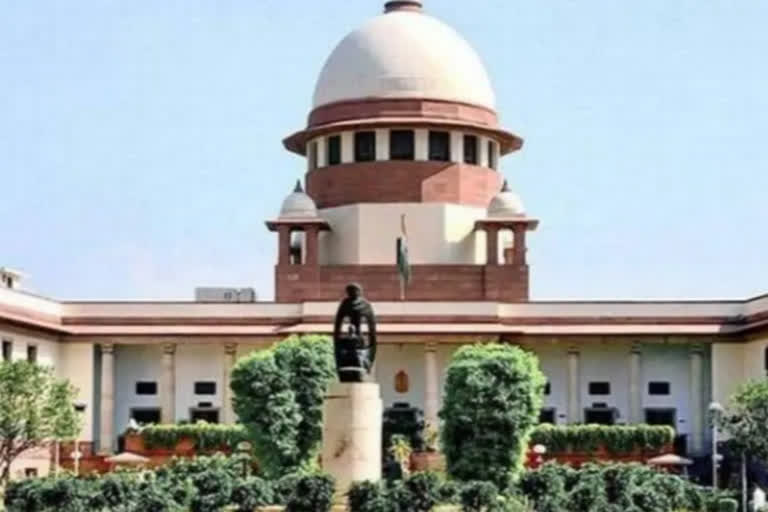New Delhi: The Supreme Court on Tuesday said it would examine the constitutional validity of Section 6A of the Citizenship Act relating to illegal immigrants in Assam and commence the hearing on pleas after concluding the cases arising out of the division in the Shiv Sena. Section 6A in the Citizenship Act was inserted as a special provision to deal with the citizenship of people covered by the Assam Accord. The provision provides that those who have come to Assam on or after January 1, 1966 but before March 25, 1971 from specified territories, including Bangladesh, as per the Citizenship Act amended in 1985, and since then are residents of Assam, must register themselves under section 18 for citizenship.
As a result, the provision fixes March 25, 1971 as the cut-off date for granting citizenship to Bangladeshi migrants in Assam. A five-judge Constitution bench headed by Chief Justice D Y Chandrachud, at the outset, said that it would hear the pleas on February 14 after hearing the cases related to the Maharashtra political crisis triggered by the division in Shiv Sena. "Whether Section 6A of the Citizenship Act suffers from any constitutional infirmity, the bench said, making it clear that this would be the main issue to be adjudicated upon and this will cover all other constitutional questions which may arise in the matter.
The framing of one issue does not stop the bench from framing other issues later, said the bench which also comprises Justices M R Shah, Krishna Murari, Hima Kohli, and P S Narasimha. The bench said that the petitioners will argue first followed by the central government and after that intervenors and others can advance their submissions. Today we won't be able to start the hearing. We will hear this some other day, it said, adding that the lawyers will have to file the written submissions and compilations of case laws and other materials within three weeks. The top court on December 13 had asked the counsel for the contesting parties to decide the issues for adjudication in a batch of petitions challenging the constitutional validity of Section 6A of the Citizenship Act relating to illegal immigrants in Assam.
The counsel would segregate the cases which fall for decision before this court into distinct categories and the order in which the arguments are to be made, the bench had said, adding we will keep it for directions.The bench had directed the apex court registry to provide scanned soft copies of the complete set of pleadings filed on the issue. As many as 17 petitions, including the one filed by Assam Public Works in 2009, are pending on the issue in the apex court. Prior to this, the Constitution bench had directed the parties to file joint compilations consisting of written submissions; precedents; and any other documentary material on which reliance will be placed at the time of hearing.
A common index shall be prepared in three separate volumes of the above compilations, it had said. It had appointed lawyers Fuzail Ahmad Ayyubi, assisting Sibal, and Diksha Rai, the counsel appearing with Attorney General R Venkataramani as the nodal counsel to ensure that soft copies of the compilations are prepared and circulated to the Bench and to the counsel appearing on behalf of the contesting parties.
Under the Assam Accord signed by the All Assam Students Union, Assam government and the Government of India on August 15, 1985 to detect and deport the foreigners, Section 6A was inserted to the Citizenship Act to grant citizenship to people who have migrated to Assam. A Guwahati-based NGO challenged section 6A in 2012, terming it arbitrary, discriminatory and unconstitutional claiming it provides different dates for regularising illegal migrants in Assam. A two-judge bench had referred the matter to the Constitution bench in 2014. (PTI)



